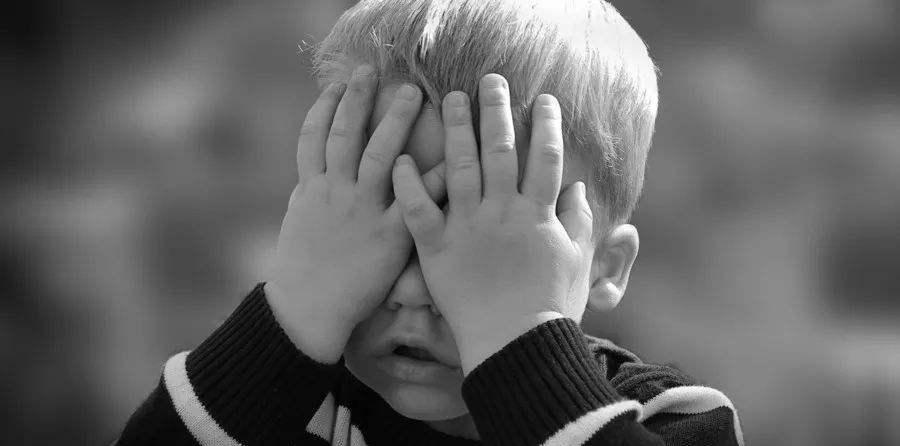Wen | Bian Wenzhi
Sometimes, a child's greatest emotional hurt tends to come from the parents. As soon as the child enters the house, he wants to see a kind father and a smiling mother, not a listless or hedong lion roaring parent. Because they need to get a sense of security from their parents' smiles, comforts, and touches, and feel love from their parents' encouragement, understanding and support.
Children's ability to understand things and the way they understand things develop gradually with age. Children in childhood may not be able to directly understand the meaning of adult words, and may even have comprehension biases. Children who have entered puberty are in the stage of rapid development of self-awareness, psychological independence and dependence, and will have a more direct resistance to some of the parents' directive requirements. Therefore, simply yelling at their children will not solve the problem, but will make the situation worse.

In fact, as a parent, it is not that you cannot criticize your child, the child has done something wrong, you should criticize, if the parent criticizes wrong or yells at the criticism loudly, in order to avoid the child's soul being hurt, you should take the initiative to make up for your mistake afterwards.
When I was doing family counseling a few years ago, I kept saying one thing to the parents of my children: "If parents have the habit of yelling and getting angry with their children, remember to find appropriate opportunities to apologize to their children." I think good family education is included in such a simple requirement, parents can be willful, but responsible. Many modern people who have accepted the concept of psychology will agree with this sentence, and what they say is: "Parents generally cannot get angry." Only by not getting angry will the child feel safe.
As a parent, it is obligatory to manage your emotions, even if you are irritable, you must try your best to expand your "container". Once you can't control the anger at the child, it is necessary to apologize to the child after the fire. The relationship between parents and children is enhanced through interaction: not getting angry is a zero, nothing happens; when a child crosses the line, parents should be angry, but they must have the courage to apologize.
I once attended a children's philosophy class, and the biggest touch was not the teaching content, but the teacher's anger. This is a middle-aged male teacher, the classroom is noisy, two boys bumping elbows into each other, one child is crying, and two people are proposing "if we don't start discussing, we'll go first.". Faced with such a scene, the teacher did his best to appease this and that. Until his voice was hoarse, the teacher couldn't bear to throw the book on the table and roared, "Do you still want to go to class?"
At that moment, I happened to be sitting in the auditor's seat and running around, and I was startled. I looked at the teacher's expression and couldn't tell if he was out of control or a tactic. The children are quiet, you look at me, I look at you. A child left. Two fighting children went out with one, squeezing their eyebrows at the door to summon the other. The girl who wanted to eat grapefruit asked if she could come back after leaving to share the prize. The teacher narrowed his eyes: "You want to be beautiful!" Eventually the girl decided to stay.
The class stabilized, and the teacher calmed down, so the teacher apologized to the students and said: I'm sorry, I was wrong to be angry just now, and I apologize to you. At lunchtime, he deliberately found the children who had left early and apologized to them separately. I asked a kid later, and he said this teacher was like that, very fierce. I saw that he was not very nervous, so I asked: Are you not afraid? He said: If you are afraid of anything, I will avoid him when he gets angry. I rarely see such a teacher-student relationship, where children can express themselves freely, teachers can also be free to get angry, and they can apologize after losing their temper. In such a school, it seems that everyone can establish their own comfortable boundaries, and it doesn't matter if there are occasional collisions.
However, in the family, children who are "yelled" by their parents may grow up with the following problems: they may "inherit" the yelling of their parents. Because, if parents always communicate with their children in a "yelling" way, the children are likely to speak in a similar way. Perhaps it is to "yell" at parents after a little older age, so that the parent-child relationship adds a layer of barriers, or perhaps also to communicate with others in a "roaring" way, affecting social interpersonal relationships. In addition, in life, this phenomenon often occurs: a child's way of speaking and interpersonal communication patterns are very similar to those of his parents. This is because the way children communicate with others is constantly learned and constructed in the process of growing up, and the words and deeds of parents will have an important impact on children's attitudes and behaviors.
In order to let children feel love from the encouragement and understanding and support of parents, as a parent, try to be less angry and encourage your children. A word of appreciation, an encouraging look, a slight praise, a smile of understanding, a gesture of praise, will become a child's unforgettable memory for a lifetime. For parents, more appreciation may not take much effort, but it is very precious for children who are eager to get affirmation, so please don't skimp on your smile and don't skimp on those beautiful words.